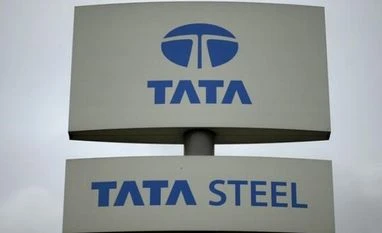Scheduled to be operational by the end of this financial year, Tata Steel’s three-million tonne (mt) plant in Odisha will be infusing 1.0-1.5 mt of primary steel into the market in 2016-17.
“Kalinganagar being a new plant will have start-up costs and could bring in negative surprises for the company, keeping expenses on the higher side in 2016-17,” said Abhisar Jain, senior analyst with Centrum Broking.
Centrum has cut its Ebitda/tonne estimates for Tata Steel's domestic operations by 15 per cent to Rs 6,952 for 2015-16 and by 14 per cent to Rs 7,539 for 2016-17.
In the nine-month period ended December, the company's Indian operations reported an underlying Ebitda/tonne of Rs 7,619. Overall, the company's performance for the quarter ended December was dismal as it reported a higher-than-expected loss of over Rs 2,000 crore because of lower realisations and restructuring and write-down on operations in Europe.
The new capacity will enhance the company’s portfolio by producing high-grade flat products catering to lifting and excavation, shipbuilding, defence equipment, energy and power, and infrastructure.
Domestic demand for steel is up by about 5 per cent but most of it is being eaten up by cheap Chinese imports. Despite several rounds of duties having being placed by the government, the business scenario has not changed much for Indian steel producers.
“The Kalinganagar product is a basic one and hence we think it should find buyers. Since the company is selling in phases (1-1.5 million in 2016-17), the market should be able to absorb it. Of course, selling at a low price will help,” said Pritesh Jani, analyst with Religare Securities. “The EBITDA for Kalinganagar is seen at Rs 700-800 crore in 2016-17, which is in line with market expectations,” he added.
The EBITDA of Tata Steel's domestic operations is crucial from the consolidated earnings point of view because the heavily indebted company has been using earnings from its India operations to serve the majority debt placed on European operations.
Tata Steel's consolidated EBITDA in the nine months ended December halved to Rs 5,622 crore from the same period in the prior year with European operations adding Rs 241 crore in loss, followed by South East Asia, which yielded a meagre Rs 155 crore. Domestic operations, on the other hand, contributed the majority at Rs 5,200 crore.
China, the world's largest producer and consumer of steel, has held the entire global steel industry at ransack by dumping cheaply priced steel, hurting not just the domestic operations of Tata Steel along with the small South East Asia business, but also its troubled European operations since the company's first non-cash write-down in 2012-13. Though the current business environment compels brokerages to see lower profitability for the company in the coming quarters, none sees the company defaulting on its loans.
On March 31, 2015, Tata Steel's consolidated net debt stood at Rs 80,700 crore with nearly 65 per cent of it on account of the European operations.
“The company has refinanced the majority of its debt and as a result there is no major repayment for Tata Steel for the next three years,” said Sudarshan Srinivasan, analyst with Fitch Ratings. “So there is temporary relief for the company. Moreover, if the business cycle turns around within this period then nothing like it,” he added.
In the year gone by, Tata Steel's finance cost stood at Rs 4,847.75 crore, an average outgo of Rs 1,200 crore per quarter. “The company can continue to service its interest cost via EBITDA generated at domestic operations and sale of non-core assets could also help it offload the interest burden. Due to this, the chances of the company defaulting on loans looks very low,” said an analyst with a local brokerage.
Tata Steel has taken several steps to restructure its European operations. Most analysts were of the view that the measures taken would not deliver any benefits immediately since the business conditions remained grim.
“The cost reduction steps at European operations have been done taking into consideration a change in the business climate. This would have benefits only in the long run and the business climate needs to improve materially for any short term relief,” said Centrum Broking.
Analysts said in the domestic market if some protection through non-tariff barriers could help the domestic steel industry in a big way.
In anticipation of imposition of minimum import price on steel imports, today, shares of Tata Steel rose 4 per cent, JSW Steel was up 2 per cent, state-owned Steel Authority of India up 6 per cent and Jindal Steel & Power up 10 per cent.
)